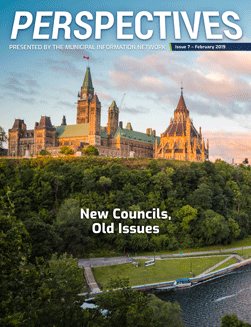The recent announcement by the Ontario provincial government of a review of regional government surprised many municipal officials.
It shows once again the power and unilateral authority that provinces have over towns and cities in Canada.
Regional governments were established several decades ago in several parts of Ontario to facilitate things like Policing, Transportation, Planning and other broad-based municipal functions.
There is good reason for wider planning, servicing and shared operations in some areas. The concept is not limited to Ontario for example, the Edmonton region functions with its Capital Region Board (recently renamed the Edmonton Metropolitan Region) which is a conglomeration of 24 municipalities in Alberta that surround Edmonton. There are other examples across the country.
The typical format is one large city surrounded by several smaller, often rural, municipalities. Concerns that spark the regional thinking usually include fear of a shotgun marriage with the larger city; concerns about traffic and transportation issues; planning (both the sprawl of the large city, and the smaller municipalities trying to cherry-pick' industries or development because of lower taxes), and the belief that some services such as Policing can be better and more economically provided on a regional basis.
As some of you know, I now live in central Florida for part of the winter. There are perhaps 20 small cities within a fifteen minute drive from my home. Each city is a few thousand permanent residents (and a few thousand more Snowbirds and tourists in the winter). Each has its own city hall, city council, mayor, fire department, planning department, and so on. Some have their own small Police Department and some have an agreement with the County Sheriff to provide policing. Each city has its own street names, bylaws on parking and building, differences in council policies and procedures, and so on.
Is that an efficient system? Probably not as much as it could be. Is it likely to change? I don't think so. (The egos of sitting politicians being the first big issue). And, unlike Canada, US states don't have the unfettered authority over towns and cities, so there is no "Big Daddy" in an oversight position.
Thinking on a regional basis for larger issues like Economic Development, Transportation and so on has always made eminent sense to me. Whether such an arrangement is formalized or not depends on local circumstances. I don't think there is a standard formula that can be imposed.
There is always going to be tensions between adjacent municipalities. There will always be disagreements over some planning, development, servicing or other policiesand practices.
But smart local officials are realizing more and more that regional thinking is a progressive and practical way of doing business today.
If one municipality attracts a new business, it is likely that surrounding municipalities will also benefit from employees purchasing housing, going shopping and so on. Equally there are costs to be born for development, transportation and servicing.
Surely there is merit in approaching some issues on a broader basis than parochial concerns alone. Whatever form that may take formal, defined, informal, loose, letters of agreement, whatever we shouldn't lose the collective strength of towns and cities that come together in a larger economic (and even political) unit.
As municipalities increasingly assert their independence and importance, across Canada we will have to carefully consider new ways of governing and financing our municipalities. Reviewing local governance from time to time can be a healthy process.
What should be avoided is the imposition of politically-based provincial dictates on towns and cities. No one knows the local possibilities and problems better than our locally elected officials. They must be at the table. Their voices must be heard.








